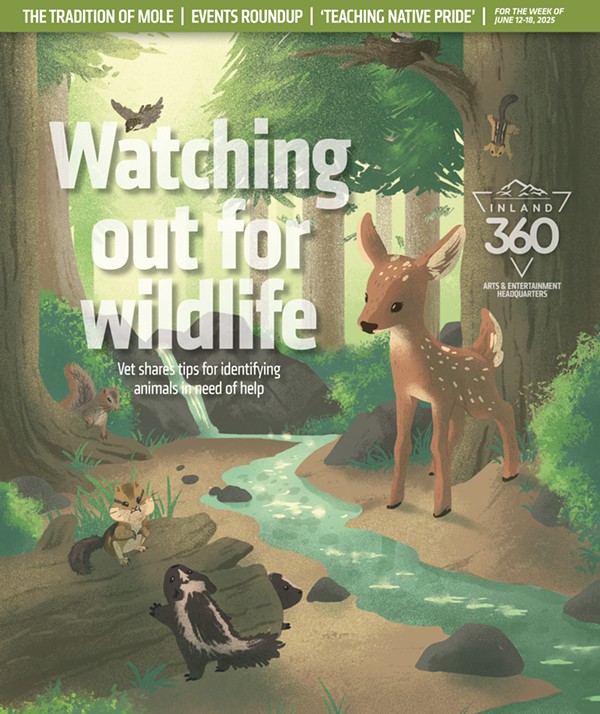
Director Darren Aronofsky carved a name for himself with films centered on the destructiveness of blind human obsession in topics ranging from drug addiction in “Requiem for a Dream,” lost fame and success in “The Wrestler” and artistic achievement and identity in “Black Swan.” His characters end up separated, alone and deeply damaged for the path they’ve trodden.
“The Whale,” Aronofsky’s latest, fits thematically within his filmography, but does so on much quieter, less bombastic ground. Brendan Fraser, in a performance that garnered a six-minute standing ovation at the film’s premiere, is Charlie, an English professor who teaches exclusively online courses and doesn’t leave his apartment because of his 600-pound frame. His friend, Liz, played with acerbic compassion by Hong Chau, is a nurse who checks in on him regularly and brings him food, as he refuses hospital treatment because he lacks insurance.
Facing death because of congestive heart failure, Charlie reaches out to his 17-year-old daughter, Ellie, hoping to connect after nine years of estrangement. Charlie left Ellie’s mother for a man who was his former student, and Ellie’s mother has kept her from Charlie in the intervening years. Ellie is played by Sadie Sink, known to most as the red-haired, Kate Bush-loving Max from “Stranger Things.”
Charlie also receives occasional visits from Thomas, a missionary from a local church cult that preaches the end of the world is near. Unsurprisingly, Thomas sees Charlie as someone in need of salvation. Ellie’s visits soon coincide with one of Thomas’ and they, too, share their stories.
Much of the tension derives from figuring the “whys” behind what drives Charlie, Ellie, Thomas and Liz, as well as revealing the backstory behind Charlie’s now-deceased partner.
In previous films, Aronofsky’s grotesque physical manifestations of emotional and psychological states are over the top, and rightfully so, given his films’ subject matter. Here, Aronofsky keeps his stylistic thunder to a minimum, letting the tiny cast take screenwriter Samuel D. Hunter’s dialogue and sell it thoroughly.
“The Whale” is one of Aronofsky’s most accessible films. It avoids the bleakness audiences expect from his work, but this isn’t to say it lacks the cinematic command he demonstrates in all of his films. It is deeply grounded and beautiful, yet unyielding in showing the devastation we cause to those closest to us and how our own delusions blind us from truth. It’s the saddest feel-good movie you’ll ever see, or it’s the happiest tragic film you’ll ever watch.
Hunter’s script walks a knife’s edge as he balances Charlie’s positivity and desire to connect with those who walk through his door with the burden of his body and relational baggage he has created. Rather than seeking salvation for himself or others, Charlie seeks connection through authenticity- even when he ultimately can’t muster this personal honesty himself.
The beauty of humanity lies in the bonds we create, despite our selfishness and the lies we tell ourselves. Like Charlie says during an online lecture, it’s man’s inability to not care that is so incredible.
Thompson enjoys putting somewhat carefully chosen words in relatively meaningful order. He lives in Lewiston and is on Instagram as @theswap_quadcities and can be reached via email at lcvrecordswap@gmail.com. He has been to college.

















